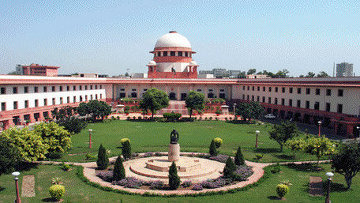MOSCOW, April 15 (RAPSI) - India’s Supreme Court recognized on Tuesday the existence of a “third gender” status, BBC News India reported.
"It is the right of every human being to choose their gender," the court ruled, as quoted by the BBC, adding, “transgenders are also citizens of India [who must be] provided equal opportunity to grow."
The court asked the government to treat third-gendered individuals officially as “socially and economically backward.” In other words, the government was ordered to treat its estimated 2 million-person third-gender population as a minority group, allocating specific job and education quotas, among other things.
Earlier this month, the Australian High Court recognized the existence of a third gender category.
“The High Court decided that the [relevant law] recognises that a person may be neither male nor female, and so permits the registration of a person's sex as ‘non-specific,’” according to a statement released by the court.
An individual named Norrie underwent a "sex affirmation procedure.” According to local media reports, Norrie was born a male, and then had an operation to become female. After that point, Norrie reportedly decided that neither gender was the correct match.
Norrie applied under the New South Wales’ Births, Deaths and Marriages Registration Act of 1995 for the relevant certificates. Specifically, Norrie sought the gender designation of “non-specific.”
Though Norrie initially received the certificates, both of which listed the gender as “not specified,” the sex-change certificate was later deemed invalid by the registrar. A new certificate was then issued, listing Norrie’s gender as “not stated.”
Norrie then turned to the courts. The first court held that the registration of a “non-specific” gender was not an option. Norrie challenged the ruling on appeal, but the appeal was dismissed.
Norrie then turned to the High Court, specifically with reference to the issue of whether the registrar is entitled to record a “non-specific” gender.
“Today the High Court unanimously held that the Births, Deaths and Marriages Registration Act 1995 (NSW) permits the Registrar to register that a person's sex is ‘non-specific,’” read a statement issued by the court.
The court then remitted Norrie’s applications to the registrar for a new determination.



